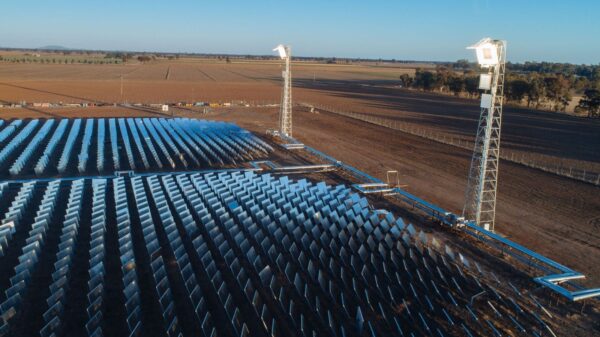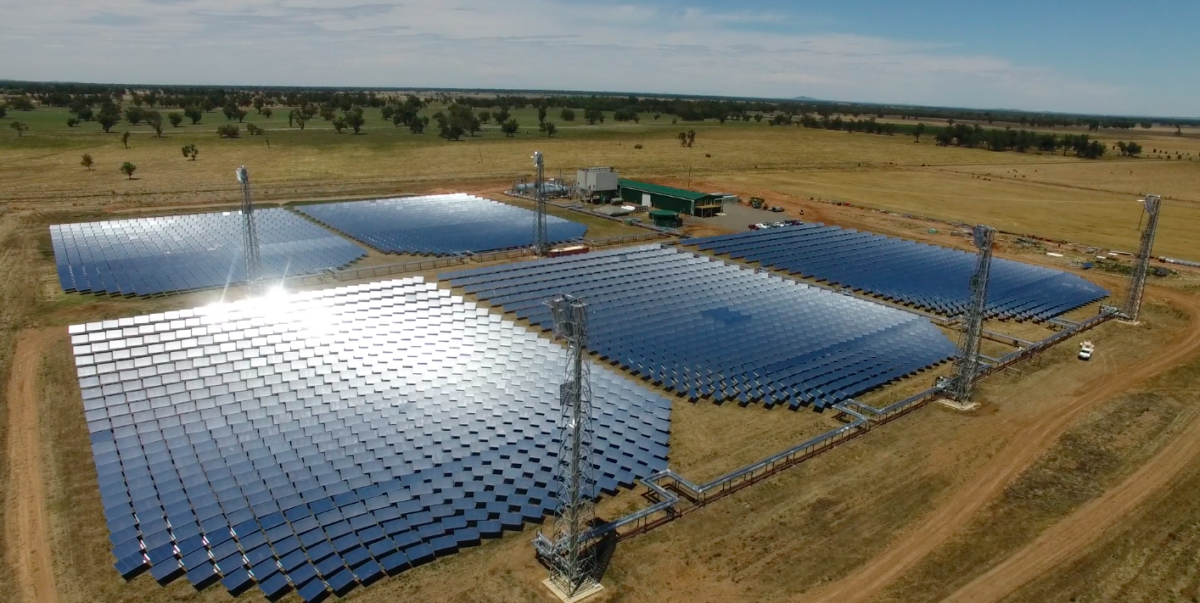Australian renewable energy company Vast Renewables has entered into a joint development agreement (JDA) with German-headquartered industrial fuel and energy company, Mabanaft to advance Vast’s concentrated solar thermal powered (CSP) green methanol reference plant, Solar Methanol 1 (SM1).
Located in South Australia at the Port Augusta Green Energy Hub, SM1 will be supplied with baseload renewable heat from Vast’s 30 MW / 288 MWh CSP plant and have the capacity to produce 7,500 tonnes of green methanol annually.
Vast Renewables Chief Executive Officer and Director Craig Wood said Mabanaft are a giant German fuel trading business responsible for most of the fuel, or diesel, which goes into Germany with a sister company with significant stake in shipping bunkering infrastructure and airport infrastructure for getting aviation fuel into jet airliners.
“Vast is providing the primary energy source into this methanol project and Mabanaft have got all the distributing, trading and customer relationships, so coming together with us at the SM1 project is a neat fit,” he said.
Mabanaft New Energy Director Philipp Kroepels said as a leading energy solution provider, the company is committed to enabling customers’ energy transition.
“We believe that methanol, in particular, can play an important role in the shipping industry, and Mabanaft is well positioned to build supply chains to meet that growing demand,” he said.
Currently the only developer of concentrated solar thermal power in Australia, Wood said Vast’s process to make the methanol ticks both key boxes with the ability to provide a combination of continuous heat as well as power.
“The Vast technology is reasonably cheaper providing long duration dispatchable storage, so night time electricity in sunny places, but really very cheap at providing heat directly from the sun,” he said.
“Our technology is ideally suited to the emerging green fuels sector so it’s about creating opportunities to deploy the core Vast technology and it just happens to be driven by liquid fuels, which is a really important decarbonisation challenge.”
Using CSP can potentially reduce green fuel production costs by up to 40 per cent according to a recent report by engineering group Fichtner and SM1’s success could unlock green fuels production in Australia, with potential for exports to Germany and other global markets.

Image: Vast Renewables
“Whether you do it only with solar thermal or with solar and CSP as a hybrid, we can actually build a very high capacity factor renewable system to run fuels plants, so, for example, you might have a wind and solar project with a capacity factor of 65%, but Vast can build a solar CSP hybrid that can get you about 90%,” Wood said.
“That means Vast has an ability to run the downstream fuel production system 90% of the time, instead of 65% of the time, hence you make better use of that equipment, so effectively it’s an asset utilisation benefit.”
As well as low cost and improved asset utilisation, Wood said the next generation of electrolysers will add 20% to 30% efficiency and Vast’s technology is again, a neat fit.
“Sold oxide electrolysers are in the order of 20% to 30% more efficient than proton exchange membrane (PEM) electrolysers which are the current generation of tech,” he said.
“A solid oxide electrolyser needs a high capacity factor of electricity supply and heat, and this emerging energy requirement is something Vast can provide as a solar thermal generator.”
The JDA with Mabanaft sets out how SM1 will be developed and further underlines Vast and Mabanaft’s contribution to the energy transition by combining technological, business development and commercial expertise.
It also includes a framework agreement securing offtake rights for Mabanaft for future green fuels projects powered by Vast technology, allowing Mabanaft to supply its shipping customers seeking to decarbonise their operations.
The announcement comes after Vast and Mabanaft signed funding agreements for SM1 for up to $40 million (USD 26.4 million), in February 2024.
Vast will receive $19.48 million from the Australian Renewable Energy Agency (ARENA) and subject to final investment decision, Mabanaft will receive up to $20 million from Projektträger Jülich (PtJ) on behalf of the German government, as part of HyGATE, a collaboration between the Australian and German governments to support real-world projects along the hydrogen supply chain.
Vast and Mabanaft are developing SM1 with the Solar Methanol Consortium and are supported by fellow Australian technology company Calix as Principal CO2 Supply Partner and the Australian Solar Thermal Research Institute (ASTRI).
This content is protected by copyright and may not be reused. If you want to cooperate with us and would like to reuse some of our content, please contact: editors@pv-magazine.com.








What are the potential environmental impacts of the proposed development project, and how can sustainable practices mitigate these effects, hence promoting ecological balance?, Visit us Telkom University